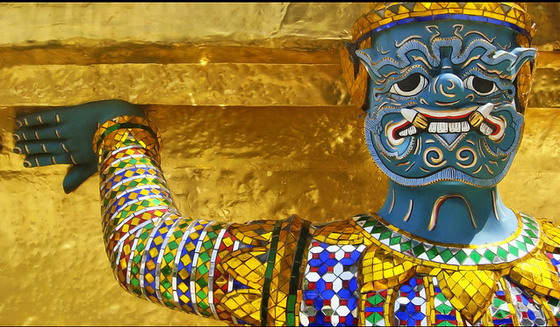When you get any type of travel visa to Thailand stamped in your passport, whether it’s been given to you to visit as a tourist or to reside and work there, the first thing you may notice on your travel visa is the expiration date. While, at first glance, the expiration date seems self-explanatory, in reality with the thousands of people asking questions about it on Thailand travel websites, it’s obvious it’s confusing to many. Expiration dates on Thailand’s travel and residence visas aren’t actually that difficult to figure out. Here’s what you need to know.
What Does the Expiration Date on a Travel, Work or Residence Visa Mean? – The expiration date means exactly what it says. The tourist visa, work or resident visa you just applied for, received and had stamped into your passport will expire on the date on the visa. That means, you MUST use the visa to travel to Thailand and arrive IN Thailand by the expiration date. The expiration date is really nothing more than one thing – the amount of time the visa itself is valid for.
The amount of time from the visa issuance date to when it expires depends on two things – the type of visa you have, and your nationality (different nationalities get different amounts of time allowed in Thailand) so check the date carefully.
What Does the Expiration Date on the Travel, Work or Residence Visa NOT Mean? – The confusion with expiration dates on Thailand’s visas begins when many people assume the expiration date means that’s the date they must leave Thailand. That’s not true at all.
Remember this – the expiration date stamped onto your travel, work or resident visa has no bearing on when you must legally leave the country. That date is shown on the arrival stamp that’s put into your passport on your arrival in the country – whether by airport, land border or boat, and will be a completely different date than the expiration date on your visa.
Does the Expiration Date on the Visa Guarantee You Entry Into Thailand? – No, it doesn’t. It may have been issued by a Thai consulate or embassy and be a legal visa, but if the Immigration Officer you deal with upon your arrival into Thailand sees something that seems suspicious (ie: you’re obviously working in Thailand even though you’re on a tourist visa, or you’re on a list of people banned from entering the country etc), then you may be denied entry.
Just make sure you do everything the legal way, and have all the paperwork necessary upon arrival in the country and you shouldn’t have a problem.
With Certain Thailand Travel Visas, You are Allowed a Longer Stay than Visa Expiration Date Suggests – Don’t forget, with certain visas like triple-entry tourist visas or one-year non-immigrant B visas, you are actually allowed a longer stay in Thailand than the visa expiration date might suggest.
For instance – if you have a one-year non-immigrant B visa, you can actually get a 15-month stay in Thailand if you arrive and leave at the correct times. Here’s how –
1) Arrive in Thailand soon after the non-immigrant B visa is first issued, where your passport will be stamped with a 90 day allowed visit.
2) On the day your 90 days expires, leave Thailand and re-enter the same day from a border like Cambodia, Malaysia etc. You will be stamped another 90 days allowed stay in Thailand.
3) Repeat this two more times, with the last 90 days showing you have to leave Thailand but the date will still be BEFORE the expiration date on your non-immigrant B visa – so, as long as you leave Thailand again and return BEFORE YOU’RE VISA EXPIRATION DATE, you’ll be given one more 90 day allowance (ie: a total of 15 months stay on a one-year visa). Even if you arrive back in Thailand the day your visa expires. Stamp. 90 more days.
Expiration dates on Thai visas really aren’t that confusing. The main thing you need to remember is the expiration date on yours has absolutely nothing to do with how long you’re allowed to stay in Thailand. That date is given to you at your point of entry into Thailand and will be stamped into your passport by the Immigration officer.
Photo – Suffer (statue at Grand Palace/Wat Phra Kaew in Bangkok) – copyright Suradej Chuephanich, Creative Commons License (check out his other photos – his work is beautiful).

